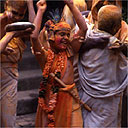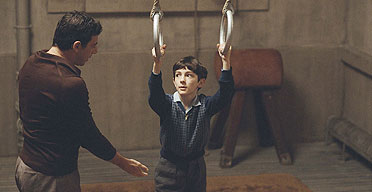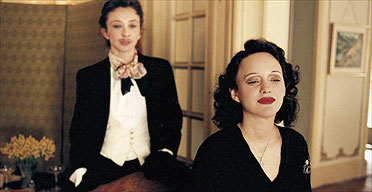Ingmar Bergman's dark masterpiece effortlessly sees off the revisionists and the satirists; it is a radical work of art that reaches back to scripture, to Cervantes and to Shakespeare to create a new dramatic idiom of its own. It was released 50 years ago, but it's as fresh as a glass of ice-cold water. Max von Sydow and Gunnar Björnstrand are the ascetic Crusader knight and his cynical squire who return from the wars after 10 years to find their country ravaged with plague and the population panicking about the coming apocalypse. The knight is confronted by the cowled figure of Death, who agrees to a game of chess, and lets the knight stay alive for as long as he can stave off checkmate. It's an inspired conceit, a seriocomic masterpiece on its own, which Bergman carries off with absolute conviction. Woody Allen's honourable homage in Love and Death brought out its latent black comedy, though a batsqueak of this is present in Bergman.
The chess game is a brilliant metaphor for man's attempt to defy mortality's gravity through his accomplishments, perhaps most vividly in the idea of artistic genius, the need to create a vital work which will survive the author's death. On his journey home to his wife, the knight accumulates a raggle-taggle entourage of strolling players, whose good-natured innocence he seizes on as a hopeful sign of humanity's decency. Elsewhere, this is in short supply. A corpse-robber turns out to be a lapsed Christian zealot; the squire is revolted to recognise the same man whose firebrand oratory inspired them to go to the Crusades in the first place.
The Internet Movie Database entry for this film, incidentally, has the tagline "surrealism", presumably because of the chess scenes. But this isn't quite right: a surrealist might sport with the forms of the real world and find sensual and subversive pleasure in the act. Bergman's project is far more earnest. The movie fiercely addresses itself to the agony of belief, the need to believe in a God who remains silent, mysterious, absent. It is a work of art that grabs the audience by the lapels, believers and unbelievers alike, and demands not answers, exactly, but an acknowledgement that this is the most important question, the only question: why does anything exist at all? Even after half a century, The Seventh Seal is an untarnished gold-standard of artistic and moral seriousness.






